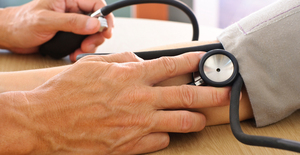Dermatologists near me
in Utah
Own a clinic? Add your location.
Help patients book appointments with you on Solv. It's free!
0 instant-book locations
Mark Taylor, MD
Mark Taylor, MD
Wendy Matis, MD
Wendy Matis, MD
Dennis Russell, MD
Dennis Russell, MD
Marc Sanders, MD
Marc Sanders, MD
Caroline Laggis, MD
Caroline Laggis, MD
Bethany Lewis, MD
Bethany Lewis, MD
Richard Odell, MD
Richard Odell, MD
Leonard Swinyer, MD
Leonard Swinyer, MD
Laurie Ellis, NP
Laurie Ellis, NP
Michael Swinyer, PA
Michael Swinyer, PA
Elena Hadjicharalambous, MD
Elena Hadjicharalambous, MD
Angela Brimhall, DO
Angela Brimhall, DO
Alice Frigerio, MD
Alice Frigerio, MD
Jessica Donigan, MD
Jessica Donigan, MD
John Zone, MD
John Zone, MD
Julia Curtis, MD
Julia Curtis, MD
Brooks Bahr, MD
Brooks Bahr, MD
Anthony Johnson
Anthony Johnson
Joe Nielsen, MD
Joe Nielsen, MD
Brian Williams, MD
Brian Williams, MD
Own a clinic? Add your location.
Help patients book appointments with you on Solv. It's free!
About Dermatologists
A dermatologist is a medical doctor who specializes in diagnosing, treating, and preventing diseases of the skin, hair, and nails. These doctors generally need about 12 years of schooling and education to earn their titles.
A dermatologist can treat more than 3,000 conditions that affect the skin, hair, and nails, reports the AUC. Common dermatological procedures, according to the University of Rochester Medical Center (URMC), include acne scar removal, dermabrasion, and laser surgery for skin conditions such as port-wine stains, warts, and scars.
What is dermatology?
Dermatology is a medical specialty that involves treating and managing skin conditions, according to the National Institutes of Health (NIH). The NIH adds that dermatology is one of the most diverse medical specialties that treats patients from all age groups who may have skin diseases that are inherited, inflammatory, environmental, occupational, and malignant.
Qualifications
People who want to be a dermatologist must earn a bachelor’s degree and complete four years of medical school, reports the AUC. Then, they must complete a one-year internship and a three-year residency in dermatology.
After earning their titles, dermatologists have the option to continue with their education and pursue a subspecialty. According to the AUC, dermatology subspecialties include cosmetic dermatology, dermatopathology, pediatric dermatology, and Mohs surgery.
Common conditions
Dermatologists can treat a wide range of skin conditions and diseases. According to Penn Medicine Dermatology, these conditions include acne, broken blood vessels, blemishes, discoloration, rosacea, and cancer. Fine lines, wrinkles, spider veins, and unwanted hair growth are other common conditions that can be treated by a skin care doctor.
Procedures
Dermatologists are trained to perform a large variety of skin, hair, and nail conditions. A skin doctor may combine procedures to help patients address their skin concerns or medical conditions.
Dermatologic procedures include:
- Chemical peels, which use a chemical solution to improve the appearance and health of skin by removing damaged outer layers, reports URMC.
- Cosmetic injections, which can reduce the appearance of wrinkles and add volume back to the face, reports the University of Utah Health.
- Cryotherapy, which is a type of cold therapy that can destroy skin growths and lesions, reports the University of Utah Health.
- Dermabrasion, which is a skin resurfacing procedure that can remove the top layer of skin to minimize fine lines and scarring, reports URMC.
- Excision of lesions, which involves using a razor, scissors, and other devices to remove unwanted skin lesions, reports the NIH.
- Hair removal or restoration, which involves removing unwanted hair and restoring hair that was lost to balding.
- Laser surgery, which is surgery that can remove skin cancer and skin lesions using a laser, reports URMC.
- Vein procedures, which focus on removing spider veins and varicose veins.
- Tumescent liposuction, which involves injecting a medicated solution into areas with unwanted fat, and removing the fat using a suction device, reports the NIH.
- Skin grafts and flaps, which involves removing skin from a part of the body to repair missing or damaged skin, reports the NIH.
- Biopsies, which are a procedure in which a tissue sample is taken from the body and evaluated for diseases such as cancer.
- PUVA, which is a type of UV radiation therapy used to treat conditions including psoriasis and vitiligo, reports the NIH.
- Mohs surgery, which is a method of removing skin cancer without damaging surrounding healthy skin, reports the NIH.

Updated on Mar 25, 2025
Solv has strict sourcing guidelines and relies on peer-reviewed studies, academic research institutions, and medical associations. We avoid using tertiary references.
Related Searches
DOT Exam in Utah
Ear Wax Removal in Utah
Physical Exam in Utah
Sports Physicals in Utah
A1C Test in Utah
Allergy Testing in Utah
Basic Metabolic Panel in Utah
Blood Test in Utah
CMP Test in Utah
COVID-19 Antibody Test in Utah
Cholesterol Test in Utah
Diabetes Test in Utah
Drug Test in Utah
Glucose Test in Utah
Hepatitis test in Utah
Mono Test in Utah
RSV Test in Utah
STD Testing in Utah
Strep Test in Utah
TB Test in Utah
Urinalysis in Utah
Vitamin D Test in Utah
Aetna Urgent Care
Blue Cross Blue Shield Urgent Care
Cigna Urgent Care
COVID-19
Flu
United Health Urgent Care
» All services in UtahEveryday Healthcare, Simplified
Expert advice to help you live your best life




![Care Continuum: Where to Go When Your Sick or Injured [INFOGRAPHIC]](https://d1kve3ll6vvkpr.cloudfront.net/dir/media/W1siZiIsIjIwMTQvMDYvMDUvMTJfNDNfMzhfODI1X3doZXJlX3RvX2dvLmpwZyJdLFsicCIsInRodW1iIiwiMzAweCJdXQ?sha=a4b9959de5e927ba)




